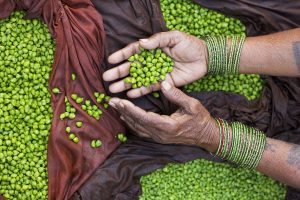MOTIVATION
Agriculture is the primary livelihood for nearly half the population of South Asia, and yet its potential to reduce undernutrition remains unrealized. One-third of children in South Asia are stunted. Despite increasing political will to improve nutrition, evidence has been sparse on how agriculture and agrifood systems can be better designed to improve nutrition. In 2012, a research consortium called Leveraging Agriculture for Nutrition in South Asia (LANSA) was formed among the Collective on Social Science Research in Pakistan, BRAC, the Leverhulme Centre for Integrated Research on Agriculture and Health (LCIRAH), the Institute of Development Studies (IDS), and IFPRI, under the leadership of the M.S. Swaminathan Research Foundation and with support from UK's Department for International Development (DFID). The aim was to generate evidence to strengthen the nutrition sensitivity of agrifood systems in Afghanistan, Bangladesh, India, and Pakistan.
RESULTS
The body of research in Bangladesh produced through LANSA reveals knowledge gaps, agricultural and other determinants of child nutrition, and regional and seasonal discrepancies in maternal and childhood undernutrition in Bangladesh—evidence that will be valuable for policy makers to better diagnose challenges and develop agricultural policies and interventions to positively impact nutrition. IFPRI recently published two papers through LANSA specifically for Bangladesh: The Other Asian Enigma: Explaining the Rapid Reduction of Undernutrition in Bangladesh and Agriculture, Nutrition and the Green Revolution in Bangladesh.
For more information on IFPRI's research and partnerships in Bangladesh, please go to this brochure.



